Premium Only Content
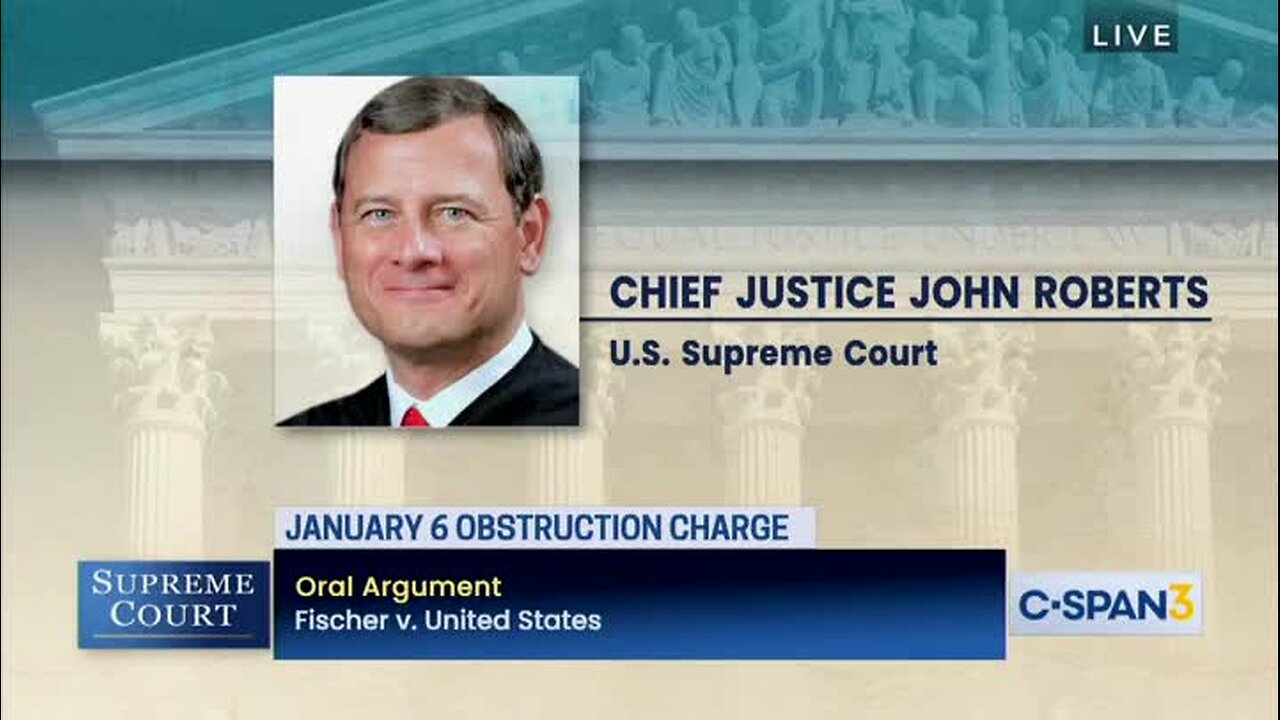
Justice Gorsuch to U.S. Solicitor General: ‘Would Pulling a Fire Alarm Before a Vote Qualify for 20 Years in Federal Prison?’
PRELOGAR: “So let me respond to that in two ways. I do want to have a chance to address any concerns about breadth. But the more fundamental point, I think, is that I don’t even understand petitioner to be suggesting that you can mix and match the verbs and the nouns from (c)(1) and (c)(2) in this way. Judge Nichols had a more limited view that (c)(2) exclusively focuses on physical objects. It wouldn’t apply to things like testimony because of the limitation that he gleaned from (c)(1), Judge Katz is I think may be in line with your question would interpret it more broadly. And the basic point is a textual matter, is that there is nothing in the text of (c)(2) itself to disclose what the relevant similarity from (c)(1) ought to be. Instead, we think the relevant similarity is obstruction of an official proceeding, because that’s the language Congress chose.”
Gorsuch: “General, if that’s if that’s the case, what work does authorize do on your theory? Because I think I would might, as I’m hearing you think that whoever corruptly obstructs influences or impedes any official proceeding or attempts to do so stands alone. And the otherwise I’m not hearing what work it does. Can you explain to me what work it does on your view?”
PRELOGAR: “Yes. So the work that otherwise does is to set up the relationship between (c)(1) and (c)(2) and make clear that (c)(2) does not cover the conduct that’s encompassed by (c)(1). Now I acknowledge that —
Gorsuch: “Beyond that, beyond that. Beyond saying, ‘OK, (c)(1) does some things, and the whole rest of the universe of obstructing impeding or — or influencing is conducted by (c)(2). Is that a fair summary of your view?”
PRELOGAR: “Yes. But there was a good reason for Congress to do it this way.” [crosstalk]
Gorsuch: “I understand that. If I may, so — so what does that mean, for the breadth of this statute. Would a sit-in that disrupts a trial, or access to a federal courthouse qualify? Would a heckler in today’s audience qualify or at the State of the Union address? Would pulling a fire alarm before a vote qualify for 20 years in federal prison?”
PRELOGAR: “There are multiple elements of the statute that I think might not be satisfied by those hypotheticals, and it relates to the point I was going to make the chief justice about the breadth of this statute. The kind of built-in limitations are the things that I think would potentially suggest that many of those things wouldn’t be something the government could charge or prove as 1512(c)(2) beyond a reasonable doubt, would include the fact that the actus reus does require obstruction, which we understand to be a meaningful interference. So that means that if you have some minor disruption or delay or some minimal outburst we don’t think it falls within the —“ [crosstalk]
Gorsuch: “OK. So my outburst require the court to reconvene after — after the proceeding has been brought back into line, or the pulling of the fire alarm, the vote has to be rescheduled, or the protest outside of a courthouse makes it inaccessible for a period of time. Are those all federal felonies subject to 20 years in prison?”
PRELOGAR: “So, with some of them it would be necessary to show nexus. So with respect to the protests outside the courthouse we have to show —“ [crosstalk]
Gorsuch: “I think — I think I have shown — yeah, they were trying to stop the proceedings.”
PRELOGAR: “Yes. And then we’d also have to be able to prove that they acted corruptly. And the sets of stringent mens rea, it’s not even just the mere intent to obstruct, we have to show that also, but we have to show that they had corrupt intent in acting in that way.”
Gorsuch: “We went around the tree yesterday.”
PRELOGAR: “I — I know. I — I — I heard the argument yesterday. But I guess what I would say is that to the extent that your hypotheticals are pressing on the idea of a peaceful protest, even one that’s quite disruptive, it’s not clear to me that the government would be able to show that each of these protesters —“ [crosstalk]
Gorsuch: “So, mostly peaceful protest that actually obstructs and impedes an official proceeding, for an indefinite period would not be covered?”
PRELOGAR: “Not necessarily. We would just have to have the evidence of intent and that’s —“ [crosstalk]
Gorsuch: “They intend to do it, all right.”
PRELOGAR: “Yes. If they intend to obstruct and we’re able to show that they knew that was wrongful conduct with consciousness of wrongdoing, then yes, that’s a 1512(c)(2) offense and —“
Gorsuch: “What does corruptly add in your view?”
PRELOGAR: “So corruptly adds the requirement that the defendants conduct be wrongful and committed with consciousness of wrongdoing. And this traces to the court’s decision in Arthur Andersen, where the Court said, this is a term with deep historical roots with a settled meaning, and that it connotes not just knowledge of your actions, which is the intent to obstruct in this case, but further requires that it be done corruptly. And just to give you a more concrete example of how this has played out in the January 6 prosecutions. I’d point to the jury instruction in the Robertson case, which we refer to and quote in part on page 44 of our brief. There, the jury was instructed that in order to show the defendant acted corruptly, the jury had to — to conclude that he had an unlawful purpose or used unlawful means or both, and that he had consciousness of wrongdoing. So I think that that is an encapsulation of what the jury is asked to decide on top of the mere intent to obstruct.”
-
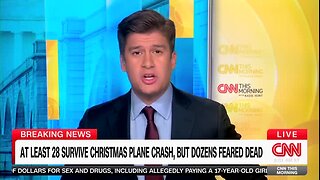 2:04
2:04
Grabien
21 hours agoCNN: At Least 28 Passengers Survive Fiery Plane Crash in Kazakhstan as Authorities Fear Dozens Others Dead
24 -
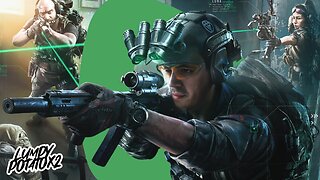 LIVE
LIVE
LumpyPotatoX2
4 hours agoThirsty Thursday on BOX Day - #RumbleGaming
710 watching -
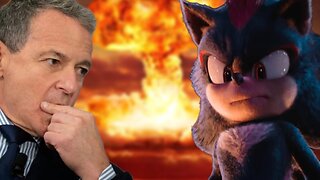 1:04:52
1:04:52
Geeks + Gamers
3 hours agoDisney RATIO'D on Christmas Day | Mufasa Embarrassed By Sonic 3
22.4K1 -
 LIVE
LIVE
Sm0k3m
7 hours agoPlaying games on Rumble
185 watching -
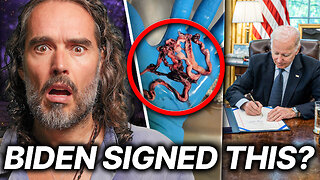 10:37
10:37
Russell Brand
2 days agoHow is this even allowed?
121K754 -
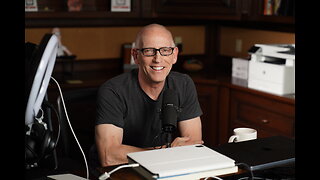 1:37:26
1:37:26
Real Coffee With Scott Adams
4 hours agoEpisode 2701 CWSA 12/26/24
60.6K67 -
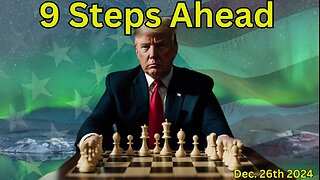 2:58:58
2:58:58
Wendy Bell Radio
9 hours ago9 Steps Ahead
96.4K124 -
 2:03:46
2:03:46
LFA TV
17 hours agoTIME FOR A NEW SPEAKER! | LIVE FROM AMERICA 12.26.24 11am EST
49.3K32 -
 1:40:22
1:40:22
Game On!
15 hours ago $4.74 earnedNFL Thursday Night Football Seahawks at Bears EXPERT Picks!
39.7K9 -
 1:50:54
1:50:54
xBuRnTx
4 hours agoWho's Ready for New Years!
29.2K1